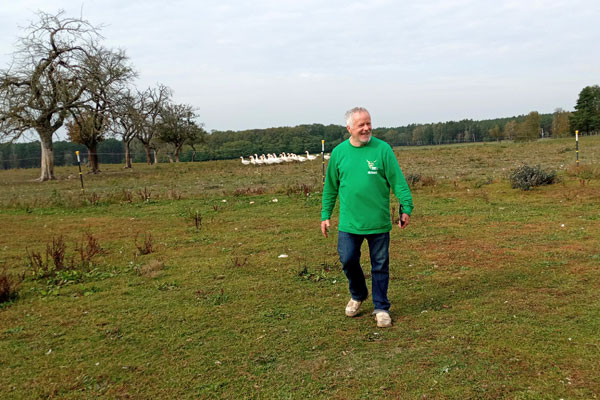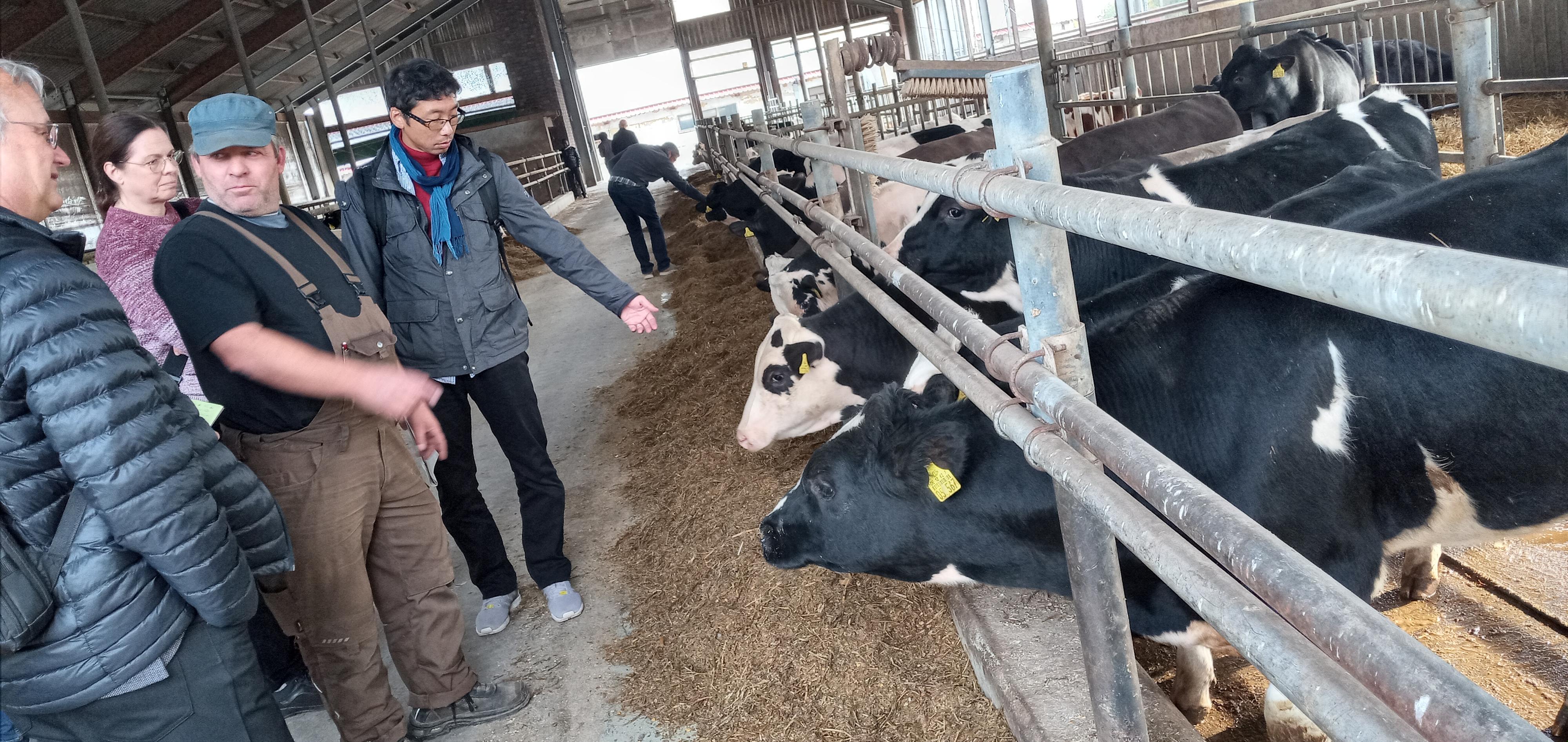Prime
German farmers’ solution to food waste and what Uganda can learn

A German farmer rearing geese for food security in his farm. Photo/ Lominda Afedraru
What you need to know:
- Experts note that since most farmers engage in various agricultural activities on large scale, sometimes they do not offset all the produce leading to food wastage.
Farmers in Germany carry out their farming activities as a business unlike in Uganda where commercial farming is a relatively new initiative.
Most small scale farmers in Uganda have of recent began embracing the idea of farming as a business as well as for subsistence.
The case in Germany is slightly different since most farmers are engaged as a large scale businesses.
This is done with emphasis to provide food security, not only in Germany but the entire Europe while minimising food wastage.
Food waste does not only occur in European countries but the entire world, including in Uganda. This is prevalent in the agricultural value chain in Uganda where there is a lot of food waste right from harvesting all through to the consumer level.
Background
Experts note that since most farmers engage in various agricultural activities on large scale, sometimes they do not offset all the produce leading to food wastage.
In Germany it is estimated that 11 million tons of food is wasted per year and this occurs throughout the supply chain from the farm gate to the consumer.
Although research indicates that food waste is mainly generated at consumer level, retailors play a pivotal role between producers and consumers.
However, the government of Germany recently came up with a strategy and policy governing food waste, intending to reduce it by half by 2030.
As such in a recent visit to Berlin, Sciencedigest25 had the opportunity to interact with experts in Universities and farmers’ federation.
How experts are tackling global food security
Professor Rainer Langosch from Neubrandenburg University of Applied Science explained that farmers in Germany are faced with price fluctuations, which partly explains food waste occurrences in the country.
In Germany, one farmer is capable of feeding 140 people per year but sometimes what they produce and exports made goes past the required ratio of persons.
Yet elsewhere in the world out of the 8 billion people worldwide, over 800 million are not well fed.
According to Prof Rainer, Germany’s contribution in tackling these challenge is done using concerted efforts, including research institutes, ministry of food and agriculture as well as Universities whose experts are deeply engaged in research to identify solutions to food wastage and other agricultural challenges.
In his University, there are students pursuing agricultural courses in the faculty of agriculture and they coordinate with experts from the faculty of applied science.
At the end of it all they go out to provide services to farmers in terms of extension service, including expertise in agribusiness and food processing among others.
The farming system and statistical data in Germany
Prof Rainer explained that the farming business started booming in 1990 after the reunification of Germany.
A number of Germans began embracing farming of various types, including farming crops such as wheat, barley, canola, sugar beet and fruits such as apples as well as cattle rearing on large scale.
As of now the average farmer owns between 300 and 600 hectares of land but a good number of them go beyond 2,000 hectares or more especially in Eastern Germany which borders Poland.
However, one of the challenges is the expensive technology required on their farms, such as computerised tractors, weeders and combined harvesters.
He noted that in Germany about 60 billion euros is eared annually in agriculture initiatives and about 305 billion Euros come from consumer production rate in processed foods or those sold direct in open markets.
Generally in Europe, farm land is owned through traditional inheritance which is not the case in the United States.
How the farmers’ Federation operates
The head of department at the Federal Germany Farmers Association Johann Reinhofer noted that his association motivates farmers who are practising both conventional and organic agriculture by giving them incentives.
There are 16 major farmers’ associations across the country with 2,600 members representing several opinions.
As a member of the board he says most of the work he does is at policy level where his team lobbies from governments in European Union to ensure agricultural and trade policies favour farmers
“Usually we ask farmers to follow regulations regarding pesticide use which must be at reduced level because too much of it tends to cause pollution, including in water and the atmosphere,” he said.




